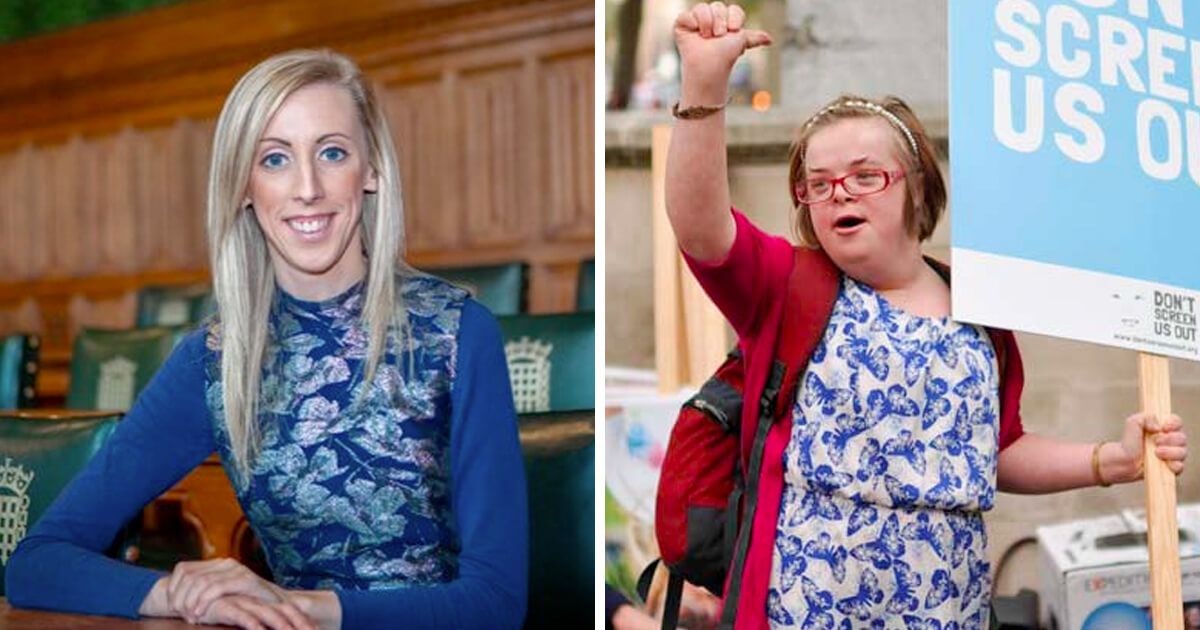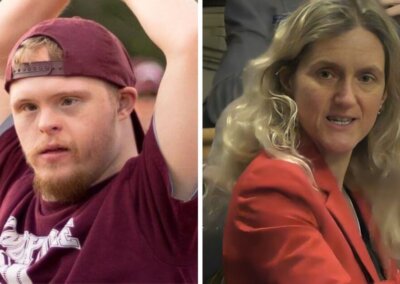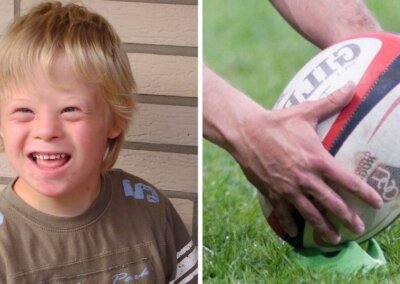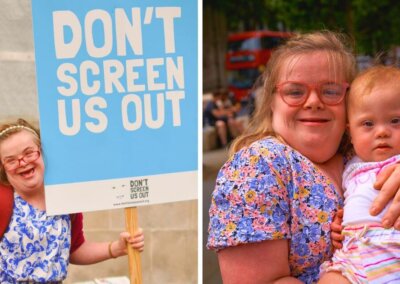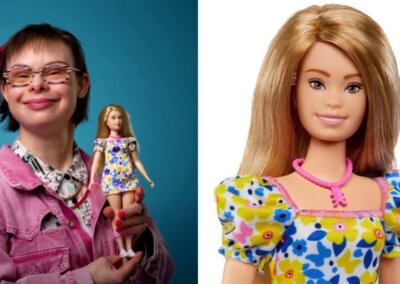Pro-life MP Carla Lockhart has declared her support for a legal challenge against the UK’s discriminatory abortion law which singles out babies with disabilities allowing abortion right through to birth – even for including cleft lip, cleft palate, club foot and Down’s syndrome.
The landmark case is being brought by Heidi Crowter, a 24-year-old woman who has Down’s syndrome, and Máire Lea-Wilson, the mother of eleven-month-old son Aidan who has the condition.
Announcing her support for Heidi and Máire, Carla Lockhart tweeted: “This is very relevant and I very much support both Maire and Heidi. All lives are precious and I would urge people to think about what Heidi said, ‘it makes me feel like I shouldn’t exist in the world’ #RepealSection9 #ItsADevolvedMatter.”
Elected in 2019, the Upper Bann DUP MP used her maiden speech in the UK Parliament’s House of Commons to defend the right to life of unborn babies and call for a culture of choosing life.
Carla’s proclamation of support comes as Heidi and Máire’s solicitor, Paul Conrathe of Sinclairs law, this week lodges papers at the High Court ahead of their legal challenge.
Carla is not alone in her support, as the legal case continues to receive international attention and capture hearts and minds around the world.
Heidi’s legal challenge has also generated widespread support from those with first-hand experience of Down’s syndrome, disability advocates and more, with over 4,200,000 people watching Heidi tell Channel 5 the current law is “deeply offensive”.
Currently, abortion is available up to birth in England, Wales and Scotland if the baby has a disability, including Down’s syndrome, cleft lip and club foot whereas if the baby does not have a condition, there is a 24-week time limit.
Furthermore, babies prenatally diagnosed with a disability can be unfairly targeted by doctors pressuring parents to undergo an abortion.
One mother, whose child is now three-years-old, disclosed how medical professionals told her they could leave her baby with Down’s syndrome to die if it was struggling after birth.
Another mum told how even at 38 weeks pregnant she was being offered an abortion. Emma Mellor, the mother of five-year-old Jamie, said: “In all honesty I think we must have been offered about 15 terminations”.
“At 38 weeks they made it really, really, really clear, that if I changed my mind on the morning of the induction to let them know, because it wasn’t too late; until the baby had started travelling down the birth canal, I could still terminate.”
Nicola Sparrow was offered an abortion at 37 weeks, after being told she would, otherwise, be induced the next morning.
Máire Lea-Wilson, who is bringing forward the legal challenge with Heidi, has revealed she was encouraged in hospital to abort her son when a scan at 34-weeks revealed he had the condition.
Recalling her experience, Máire said: “I felt like the assumption was that we would abort our baby.”
Earlier this week, she told Sky News: “I have two sons and I love and value them equally and I think it seems really wrong that the law doesn’t value them equally.”
Heidi Crowter, from Coventry, who has Down’s syndrome said:
“At the moment in the UK, babies can be aborted right up to birth if they are considered to be “seriously handicapped”. They include me in that definition of being seriously handicapped – just because I have an extra chromosome! Can you believe that?
“What it says to me is that my life just isn’t as valuable as others, and I don’t think that’s right. I think it’s downright discrimination!
“The United Nations Committee on the Rights of Persons with Disabilities recently said that the United Kingdom should change its abortion law to make sure that people like me aren’t singled out because of our disabilities.
“Sadly, the Government decided to ignore their recommendations and didn’t change the law. So now, I am going to take the Government to court with other members of the Down’s syndrome community to make sure that people aren’t treated differently because of their disabilities.”
Máire said: “I have two sons and I love and value them equally and I think it just seems wrong that the law doesn’t value them equally and we want to change that.
“I love and value them equally, so I don’t see why they are not valued equally by the law.
Once it was thought the baby had Down’s syndrome, the first thing they wanted to talk about was whether we wanted to terminate the pregnancy, and I was 34 weeks pregnant, so it was quite a difficult question to get asked at a time when I was scared and vulnerable.
“It is really tough to think back on that, I find it really difficult to think that Aidan’s life isn’t seen as valuable as his older brother’s, it makes me worry as to whether he’ll be seen the same or treated the same.
“I felt like the assumption was that we would abort our baby.
“Our case is not about the rights and wrongs of abortion. It’s about the specific instance of inequality in the law, whereby for a child without disability the legal limit is 24 weeks, but you can have an abortion right up to full term with a child that does have a disability. That just feels wrong.
“I also really worry that when he’s older if this law is still in place, how will that make him feel: that he’s not as valuable, that he doesn’t have equal worth?
“Aidan is a little ray of sunshine. I would not change him for the world.
“He’s had some challenges and done so well so we’re just really proud of him.”


